Hello everyone SaltyJohn, Las Vegas Open head judge and TFG Radio contributor here to talk to you today about a few issues in table top gaming. PT Taylor recently posted an article here on FLG and I wanted to posit a view that supports his by giving a bit more of the background to the issues he raised. Notably the difficulty in taking 40k, or any table top game, “Pro”.
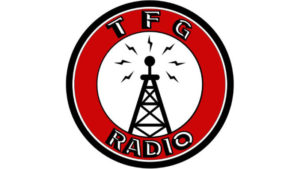
As tabletop gaming has become more and more popular over the years, large tournaments and cons (conventions) have grown up around the different game systems. Some, like the LVO and ITC, even carry fairly significant cash prizes. The growth of competitive tabletop gaming, and the live streaming of these events, for games like Warhammer 40,000 and Warmachine has created a slew of new conversations among community members about cheating, “Pro” 40k, the role of judges, and the integrity of the game via live stream. While it sounds great to members of the community, “pro” 40k with “pro” officiating isn’t a feasible option for tabletop gaming, at least not in the current state of the games. Often times the tabletop community points to e-sports and the dominance of Twitch stars as examples of how 40k can be brought into the “pro” realm, but the correlations between the two are slim.
There is a multitude of reasons why e-sports has come into its own and acts as a platform for massive player inclusion and PR for the games. E-sports has also created a lot of interest from game makers in the idea of pro leagues and tournaments, so much so that Blizzard Entertainment released Overwatch with the purpose of it being a platform for professional, competitive play; and games like PUBG (Player Unknowns Battlegrounds) and Fortnite hit the market touting their e-sports readiness and competitive and professional aspects. Games such as Overwatch, DOTA (Defense of the Ancients), Counterstrike, Starcraft 2, and League of Legends have created massive e-sports followings for themselves, their developers, and for the gaming community as a whole through the use of Pro-Leagues and Pro-Tournaments. This is why many tabletop gamers want to see the same happen for 40k, Warmachine and others. Often times pointing to the successes of the professional Magic the Gathering circuit as evidence as well. Unfortunately, this can’t happen without a lot of work.
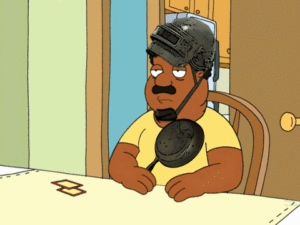
The reasons video games work competitively better than tabletop games are many and varied. Many of these are shared by Magic the Gathering, a game which works very well competitively and has a pro circuit.
- The rules are all set, and not open to interpretation. Any bending of the rules by players or game mechanics is there by design.
- The e-sports games all have a consistent format and rules base. In many cases, this is built into the coding of the games themselves.
- Cheating and poor behavior are either not possible at the pro-level and/or it is highly monitored and very strictly punished.
- There is no way for players to play the game incorrectly, meaning there is no way for a player to forget a rule, or a mechanic, or a forced move/play.
- Games are generally short, no more than 30 minutes, and best of rounds are fast-paced, keeping people’s attention in a live format. The composition of sides generally is varied from game to game and map to map which also creates a more stimulating experience.
- The prize support providers, and game developers have a lot at stake and go to great lengths to ensure that the e-sports games function correctly, players behave in an appropriate fashion, and both the live and online audiences are also well behaved.
If you’ve ever played tabletop games, whether competitively or not, you can probably see where this conversation is headed. The factors that make e-sports successful are almost completely lacking in competitive tabletop gaming. Warhammer 40k is easily the most popular tabletop game and has the largest competitive following, so it makes an easy benchmark for this conversation.
The success of pro-circuit e-sports is based in large part on the solid foundation the games themselves provide. 40k, and other tabletop games are inherently unstable platforms. While games like Starcraft 2, PUBG, Fortnite, LoL, or Overwatch may receive updates or patches that shift the meta of the games slightly, the shift is often much less than those of an edition change in 40k and take place instantly across all events, all levels, all formats, and they are impossible to not follow. You can’t simply play the non-nerfed version of Bastion in Overwatch. You can, quite easily, play the un-nerfed version of something in 40k because rules changes can be easy to forget and overlook. They can also easily be “forgotten” by players. While there are certain maps in SC2 that favor Terran or are terrible for Zerg players, the opponents can often choose maps for their matches or have a veto system. The same is true for Overwatch. The same doesn’t happen in the tabletop world, and often times these map imbalances were put in place by the game designers on purpose. That is again, generally not true of 40k, Warmahordes etc.
The format of Pro-circuit e-sports competitions tend to be consistent. They are also generally built into the coding of the games and therefore nearly impossible for a player to cheat or fudge in any way. While some e-sports events may vary in terms of how they organize their ladder play or award points, the formats of the events rarely lend themselves to players taking advantage of the system. In 40k, for example, going to one of the three preeminent tournaments can mean you’re playing almost completely different games. The Las Vegas Open, NOVA, and Adepticon vary widely in format, table set up, and even rules that are used or changed from the core rulebook via missions. The lack of standardization of rules and format is a major stumbling block to “pro” level competition. Various formats and changes to the games themselves by the hosts of events is a major issue. Allowing for certain regions to “home grow” their own version of the game provides a distinct disadvantage to players traveling from outside this meta. This very situation has almost singlehandedly created the East Coast/West Coast divide in the competitive 40k community. Something absent in Korean/European/America leagues for games like Starcraft 2.
One of the biggest problems with tabletop gaming attempting to become a “pro” style sport are the mechanics of the games themselves. Unlike an e-sport like League of Legends, SC2, or even Magic the Gathering, there is too much ability for players of tabletop games to play an imperfect game and advance in, or even win, a tournament despite making mistakes that would otherwise be deemed cheating. Imperfect doesn’t mean the player(s) make mistakes in terms of strategy, imperfect meaning the game itself is played incorrectly. The very nature of a game that is reliant on random mechanics, that are controlled by the players, and that includes mechanics that are imperfect by nature such as measurement means the game is open to breaking down into rules debates and squabbles over a player error or “error”. This includes concepts like accusations of cheating, perceived taking advantage of distance, movement, where dice are rolled etc. If you need any more evidence that tabletop gaming is inherently imperfect, head over to any of the myriad channels on Twitch or YouTube that have archived footage of old live stream games. You will find mistakes, lots of mistakes. You can also find clear evidence of the existence of an entire class of player, TFG or WAAC, who will skirt the edge of ethically acceptable ways to play in order to win. Again, you can find ample examples of this on the internet. The very existence of a group of players who fit that bill is problematic for any pro-style league. Granted, you can find poor sports and cheats in games like Overwatch, but outright cheating is easy to catch and is harshly dealt with by Blizzard; that’s not true in tabletop gaming. Cheating can cause big issues for e-sports. PUBG has a big problem with cheaters, not in the competitive scene, but in the normal game. This has caused the brand to be tainted significantly and has led to a drop in interest in the game as a whole and as an e-sports platform. The root of the cheating in PUBG is linked directly to the ability to buy and sell loot crates, the money is the problem. It shouldn’t be surprising then that we find cheating is a bigger problem at larger events that have larger, even sometimes cash, prizes for 40k than you find at your local monthly RTT. Not to mention a good number of players who would be considered for the “pro” circuit of 40k and Warmachine have had games at major events that were fairly controversial without actual cheating occurring and some had games where cheating almost certainly occurred in one form or another.
Our culture today, particularly with the rise of easy means of communication via social media, has become increasingly a culture of “the take down”. People on the internet ready to pounce on any, and every, little imperfection of a person. Any mistake they’ve made at some point in their lives and suddenly the gelding knives are out and the net is looking for blood. This is something we see in every facet of our culture today from news, politics, celebrities, professors, local law enforcement, your former best friend who now pals around with that new kid from cool sex having, fast car driving high school who you just know must be an elaborate IRL poe and you’re going to search all through friendster to find out the truth! Anyway, with how we constantly are out to “get” people for every little thing it is going to be difficult in a game as imperfect as 40k to keep an untarnished reputation long enough to become the Tiger Woods, or Shroud, of 40k. Basically everyone has cheated at 40k at some point, even if the “cheating” wasn’t intentional. No perfect game of 40k has ever been played nor will one be.
If you need evidence for 40k being nigh unplayable as a “pro” event look no further than Mysterious Objectives in the previous two editions of 40k. It was part of the game, supposed to be used in most events, and yet players forgot or “forgot” to use them often. If two players were playing similar shooting based 40k armies with only the relic as the objective and 2 secondary objectives they may forget to roll for mysterious objectives, or just not care to. Next round one of those players moves on to face a flyer heavy Necron army in a mission with 6 objectives. This game he “remembers” or decided that those Skyfire Nexuses would be game changing, so Mysterious Objectives were used in that game. That is a major problem. Players can, and often forget or “forget” to use entire mechanics of the game. Even when it is unintentional forgetting, a “must do” action in the game can be extremely beneficial to one side or the other. E-sports doesn’t have this issue of imperfect games. There simply isn’t a way for a game of Starcraft2, Overwatch, or League of Legends to be played with a forgotten rule, forgotten sequence, misremembered rule, or the like. The game, its mechanics, and its rules are controlled by the computer and the players can only interact through the computer(s) which don’t make mistakes with the game state. Even in Magic the Gathering, the game has very few points at which it can be broken due to one player or the other willfully “forgetting” a necessary part of the game. If a problem were to occur in either an e-sport or MTG the game/match can, and is, reset and started again. Another option that simply can’t happen with Tabletop games on a pro level due to the length of play.
The average Pro game of SC2 is played as a best of 5 and each round lasts 11-13 minutes. So a total of an hour to an hour and a half average for that round of play between those two players in that bracket. The average game of 40k at tournaments are given a round time of 2 hours 45 minutes to 3 hours 15 minutes. For a single game. The average Pro game of Overwatch is 6-7 minutes per round. 2-3 rounds per match, and a best of 5 as the usual set up. That means assuming the highest average times and rounds you’re looking at 63 minutes per bracket match between teams. Again that’s close to a third less the time of a single game of 40k. A structured live format that works competitively, as mentioned before, is Magic the Gathering. With rounds lasting between 1-second concession matches and 20 minutes, the games are again much faster than a game of 40k or Warmachine. Warmachine is admittedly a faster game but still finishing a single game in over an hour on average (with some games going longer). Time is an issue for tabletop gaming going pro as it limits the audience to only those with large amounts of time to watch and great attention spans as the map (table set up) doesn’t change.
Besides not allowing for a reset of the game due to a glitch, unintentional rules break, or the like, the vast amount of time needed for a single game in a tabletop game means the audience will be small for the games. One of the primary benefits of the Pro Leagues for e-sports is the exposure it gets the game and sponsors online through communities like Twitch, YouTube, and even the Battle.net streaming. Even if you don’t know a lot about a game being played on Twitch, they are short enough, and the announcers and game fast paced enough, that the attention of the audience can be easily kept. With a 1 and a half to 3-hour tabletop match, the pace of play is slow, with several bumps in the road like deployment that create lulls in the viewing experience. No matter how interesting the announcers are, tabletop games can still drag at points. Even a marquee event like the Las Vegas Open streamed live on Twitch has a massive variable number of viewers. The sponsors of e-sport events want a consistent, and consistently high, viewer rate.
Another drawback to the long games, and a deterrent to stable viewership are periods of rules debate or calling for judges to intervene. This often creates a situation in which the audience actively takes a side and then proceeds to tear one or both players apart for perceived unethical, or even cheating, behavior. Sponsors of e-sports have a lot on the line when they provide monetary support to these events and games. With so much on the line, the sponsors want their players, and even viewers, to behave in certain ways and promote the game, and subsequently their product. This is a bigger problem for Tabletop gaming going pro than it seems on the surface. The judging of events and the problems with cheating have become a much more prominent, and widely discussed, issue than in previous years. The feelings of the entire community around the role of judges has begun to shift as well just since this time last year. The role of the judge has always been a passive one. Rather than an active participant in the game the judge was a passive presence, there to be called upon for adjudicating an issue but otherwise uninvolved in the actual game. Even with a judge stationed at a particular table, for whatever reason, the judge has in the past been there as a passive participant and would only really ever interject in the game in the case of an egregious error being made by one, or both, players. Just since the last LVO, the online communities idea of what the role of the judge should be has begun to shift from passive judge to active referee. This is also something that is much more problematic than most people in the competitive tabletop community realize.
Just last year the LVO judges, including myself, came under significant push back online for doing something simple. Taking questions about how we would rule specific things at the LVO and answering them publicly. Fast forward to today and judges, not from the LVO, were getting raked over the coals for not stepping in and being more proactive during games and before events. There have even begun to be calls for judges to become “official” referees rather than judges and to have one for every table, or at minimum one for each of the top tables at an event and to begin actively officiating the games. There are several major stumbling blocks that would need to be overcome to have the current judges at 40k events become officiants like they have in the NFL, MLB, or NBA.
The NFL has a rulebook that has around 80 pages of rules. Those rules generally don’t interact with each other too much, but more importantly, they are contained entirely within those 80 or so pages and the responsibilities for enforcing those rules are spread out among several individuals and groups. From the grounds keeping rules, to the balls and equipment, to the play by play officiating the responsibilities of rule enforcement are spread out. The Space Marine Codex alone has over 70 pages of rules. Those rules then interact with the 12 pages of Core Rules and the custom missions being used by the event, perhaps another 12 pages. All those rules then interact with 60-70 pages of rules from 13 other Codices, 8 Indexes including Forge World, Chapter Approved and the dozens of pages of FAQs/Eratta from Games Workshop. That is, at a minimum, 1000 pages of rules. By asking a judge to be an official you are no longer asking them to simply be familiar with over 1000 pages of rules, their interactions with each other, custom formats, and have a sense for adjudicating rules dispute effectively in a logical manner. You’re now changing the demand of the judge to actively officiate the game by being able to take any combination of those 1000 pages of rules and actively catch mistakes between players, player and the models, player and the game, etc. That isn’t really feasible to expect a single person to be well versed enough in all aspects of the game to be able to walk up to a table between two players and armies and know all myriad of rules interactions issues well enough to actively call out when a rule is being broken. The idea that a judge should become a referee is untenable. The idea that the judges should become more active isn’t unreasonable though.
Let me explain. The core issue of cheating, and thereby one of the core stumbling blocks to 40k as a “pro” game, isn’t usually a broken rule. Rather it’s a breaking of the “gentleman’s” agreement that the entire system of competitive tabletop gaming is predicated on. Player A takes 45 minutes of a 2.5-hour game to deploy 10 units, constitutes a breaking of that agreement. Player B agreeing to use a clock to track Player A’s slow play during deployment, and then not wanting to abide by the clock when his runs out mid-game, is also breaking that gentleman’s agreement. In this, I think there is room for marked improvement from players through more active judging. Giving judges license to more effectively go after people for breaking the gentleman’s agreement to their advantage would go a long way to creating a more ethical game state that is also more palatable to audiences and potential sponsors. The next issue is finding enough competent judges to actively officiate all the top tables while also being able to provide enough coverage to help everyone else. The vast majority of players who are good enough to be considered a head judge would almost certainly choose to play rather than judge. Especially if you’re talking about a marquee event like Adepticon, Las Vegas Open, NOVA, etc. In order to get good judges you’ll have to find a way as an organizer to find people who will remain dedicated to the job without compensation for the most part, and then provide them with clear guidelines on expectations in regards to “officiating”. The guidelines for this would more than likely have to be universal otherwise it would be unfair from a player perspective as the judge’s roles being different from event to event would be unpredictable and thereby unfair.
Reece and Frankie have something unique in the Las Vegas Open for competitive 40k when it comes to the judging staff. The head judges, which includes me, is a group that is active with each other and the rules year round. It’s also the same core group year to year, and while we aren’t paid, Frontline Gaming does a good job helping us cover costs where they can for us to come and run/judge the largest Warhammer 40k tournament in the world. Even with a core group of very dedicated judges and the ability to help us pay to get to the events, there is still the temptation on the part of all of us to play in the event rather than judge it! In order to cultivate, and maintain, a group without relying solely on their sense of dedication, requires two things. Money and a single cohesive certification process, like Magic the Gathering has. Until events raise the costs of their tickets with the intent of paying judges, and until Games Workshop creates some sort of certification process for judges those two stumbling blocks to the increased legitimacy of competitive 40k as a true “pro” event will remain large and near insurmountable.
Ultimately the entire argument for or against tabletop gaming being able to go pro hinges around the simple fact that top tables, top events, top players, and the community as a whole cheat, they fudge things, they forget, (call it what you want) but behaves in the thick of competition in a less than above board manner at all times. That’s highly problematic. In a game with as many fudgeable and “forgetting” prone moments as 40k, Warmachine, X-Wing, even Age of Sigmar, you’ll struggle to find players that the wider community will view as being 100% above board. Think back on the last 5 years of competitive 40k or Warmachine. Think back just on these last 2 years of 40k and how many events were won by players who had major questions raised about their in game behavior and play, or their outright incorrect and illegal army lists. That is not a foundation upon which you can build a viable pro level competitive environment, sport, or league.
Brandon Caiting is a player who made his mark as an excellent Warmachine player in the heydays of Mark 2, a solid Warhammer Fantasy and 40k player, has judged Magic the Gathering tournaments, played in many Netrunner and X-wing tournaments, and worked in the video game industry with League of Legends. He’s well versed in competitive gaming of all stripes and his opinion on the topic of tabletop gaming “going pro” should be heard, I originally discussed this with him 2 years ago:
“It’s very possible to establish a series of social interactions that allow us to cleanly play the game to a standard a majority of players and judges would find acceptable”. Brandon’s opinion bears a certain weight, so assuming he’s correct what would it take to “go pro” for competitive gaming? Daniel Ruiz (one of the judges at LVO and contributor to Frontline Gaming) said the following at one point: “At the very least if you want ‘pro tabletop gaming’ leagues you need: a judge at each table, no phone use during matches, timed turns, and strict penalties for infractions.” However, for a truly competitive pro league that is accepted as being legitimate and above board by the community the game itself needs to evolve as well. Currently, the climate suggests that organizers/sponsors of tabletop gaming events aren’t willing to take the hard line on infractions that companies like Blizzard routinely do for their games. Much of that comes from the fact the game(s) can’t be played cleanly, or perfectly, from a rules and interactions standpoint. Until the games themselves are cleaned up to allow for the type of social interactions Brandon talked about the organizers of any Pro League for tabletop sports will be wary to make the leap into running Pro-Leagues.
That said it is entirely possible to end up with more pro-active judges in the current state of affairs simply through stepping up the entire communities acceptance of the judge as a regulator of sportsmanship, not just rules. Having, I believe, given ample evidence that an NFL officiating style judge for 40k isn’t viable I would like to reiterate that having the judges remain a passive rules judge, but active sportsmanship and game state referee is not only feasible but at this point readily necessary. If an event has the requisite resources to provide ample judging for the top tables at an event, without creating a dearth of judges for the remaining players, then it is time for those events to revisit the role of the judge. I would suggest the following guidelines for judges in the future.
- Judges actively officiate the core rules of Warhammer 40k. Measurements, die rolls, deployment etc.
- Judges passively adjudicate nuanced rules disputes between players when a solution between the two is not easily reached.
- Judges enforce and run, the clock. Yes, chess clocks are an integral part of this plan working.
- Judges police player’s sportsmanship and their adherence to the “gentleman’s agreement”.
- Judges are given full authority to issue penalties from docking time to calling a game and expelling a player from the event.
When you combine all of the factors I outlined above about the issues with competitive gaming being a “pro” game you get a near-impossible sell as a pro event. The players simply can’t play a perfect game, even if it is highly regulated. Those irregularities will always be caught by the audience (just look at any live streamed Tabletop event). This creates a major problem for the sponsors as they want winners who are not only good players but are viewed as being legitimate winners who behaved in an ethical and above board fashion. As it is now, this sort of ultra-ethical behavior does not exist in the competitive tabletop gaming world. The addition of a dedicated judge at the top tables with a clear role as outlined in the bullet points above would, I think, go a long way to creating an environment where competitive tabletop gaming isn’t only played in a more ethical fashion but is perceived to be a fairer, more legitimate, game as a whole.
I hope you enjoyed this short 4500 word essay, as always let me know what you thought in the comments!
And remember, Frontline Gaming sells gaming products at a discount, every day in their webcart!




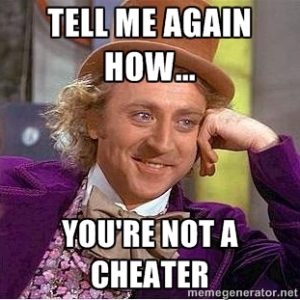
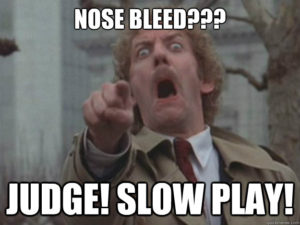
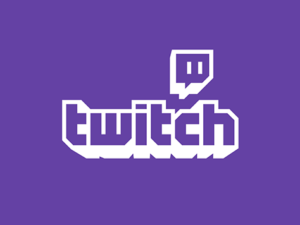
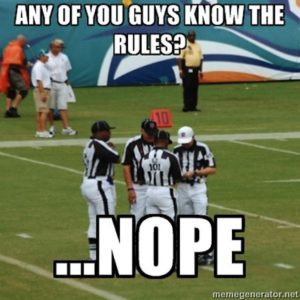
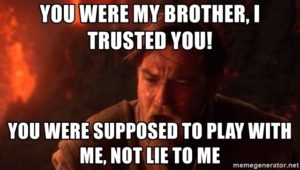
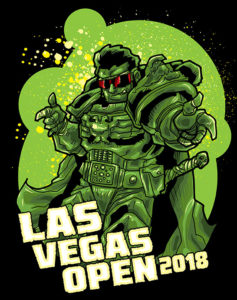
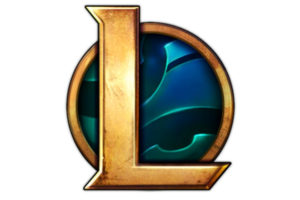

Can I get the cliff notes?
Bruh, I included an audio version! Come on Grandpa! 😀
Where is the audio? I can’t sit on the John this long…
Great article, excellent points. I think the final bullet points are spot on insofar as what we could reasonably expect from 40k “referees.”
Thanks, yeah I don’t think full officiants could be a thing, but there is room for improvement to be sure.
Very well thought our article. It will be interesting to see where the future of 40k competitive goes from here. Would love to see it become an e-sport type thing
That’s the goal! Think how many more people we could get involved in the hobby if we got it to be fun to watch? It could really grow things and keep the hobby healthy.
I think the author summed up why this game cannot make that transition to pro levels very well. 40k is simply not streamlined or honed enough to be able to be played at the precision that is required for pro games. You have to bridge alot of the gaps between this game and esports in order to make that transition and the only way I see that as possible is for 40k to be ported into a video game. You would lose the hobby aspect but you’d gain all the benefits of computer horsepower. It could eliminate cheating, misplays, ‘forgetting’, and all the other complaints that were called out in this article. You’d speed the game up significantly through automation. No more measuring or even dice rolling. Shooting and fighting would occur automatically and resolve nearly instantly. It is the best solution and would likely expand the player base as well.
I think that referees could be viable if the audience became big enough. The typical 40k enthusiast is a great marketing target, if the viewership took off then financers would definitely follow and tournament organizers would be able to pay for things like referees (if they prove to be necessary). An example of this in esports is the Counterstrike scene. Back in 2012 Valve released a new version of the game with no intention of pushing esports themselves. During the following year they made no real effort to support the burgeoning scene and so tournament organizers were left to fend for themselves. At this point many of the top tournaments were rife with issues like hours of delays, potato computers, lack of table space, no proper anticheat measures etc, all of which put a dent into the legitimacy of the competition. As the scene continued to attract more viewers the top tournaments eventually had enough funding to be able to and expected to deal with these issues. Note that they didn’t have to solve the issues in order to get more viewers, it was the other way around – the rising popularity stemmed from the exciting gameplay. I think that the same needs to happen with 40k if referees are going to become a thing. I can’t imagine that tournament goers would be willing to pay for referees and volunteers are only willing and/or able to do so much.
I would also like to draw a comparison between CS and 40k in terms of game length. The regular format in CS is best of three maps where each map is between roughly one hour long. A typical game is two to three hours long including break times. That’s a pretty good indication that game time doesn’t have to be a problem for 40k. What’s more is that some of the best single maps of CS have been up to 100 minutes long without breaks, the best example of which would be the recent final map of the Boston Major. I’m not saying that these games are directly comparable but rather that viewers are willing to watch for 2+ hours at a time as long as the content remains captivating.
The only question is whether the popularity of 40k tournament content can continue to rise.
Some really strong parallels there for sure.
The issues that this game facing becoming a pro game is solved simply by porting it to a video game. It would fix nearly every issue called out. Players could still mess up phases and what not but nearly all the core rules could simply be automated to become non-issues. Movement and measurement are all mouse clicks. Shooting and fighting resolve instantly with no dice rolls needed. Even slow play would become less of a problem as the tedious aspects of the game are handled by the game and the players can focus more on tactics. It’s a simple solution except GW wouldn’t ever do it. They license a crap ton of video game titles for 40k but never a game that mirrors the tabletop game. It would replace, and thus kill, the tabletop game. it’s sad because that game would be AWESOME 🙂
I suppose a video game version would fix the issues to a great extent but that isn’t a game I want to play. I want to play the miniatures game, I do get what you’re saying though.
I mean, it could also be solved by turning it into actual battles. That would be entertaining.
Also not that likely. haha
Thanks for taking the time to share your thoughts and insights SJ; I thoroughly enjoyed the article. I also absolutely agree with your summative bullet-points at the end. If the TOs were able to collectively standardize (“harmonize” for the Canadians out there) their rules and consistently adopt your suggestions, the game and community would be much better off for it.
Entertainment value alone won’t effectively drive growth in TTG. What honest competitor wants to invest and compete in a rigged game? Increased integrity drives trust and incentivizes investment in the platform.
Shrewdly speaking, this is money left on the table by GW’s limited vision. Imagine the virtuous cycle and halo effect of a fair, competitive, and popular W40K league on the retailers, painters, craftsman and players. I hope it happens.
Maybe, someone should transform 40k into a digital tabletop game, still to be played on something like a digital flatscreen-table. The exact same game in digital form. This would solve simply every point of the article. However it also destroys the basis of GWs revenue ..
Actually read the whole thing and found it fascinating. I’ve played Warhammer in one auspice or another since second edition’s release and also Magic: The Gathering since Revised (as well as being a judge) and I was interested in the comparisons drawn between the two. Certainly this subject cannot be discussed without esports factoring into the debate, but Magic: The Gathering due to similar problems, for me, is where the majority of lessons can be learned.
As mentioned in your conclusion, time keeping is vital to any rules enforcement (LVO semi-final being a perfect example of the knock-on issues a lack of it can cause). In MtG, time is strictly monitored and slow play is penalized to ensure that no unfair advantage is gained. With timing rules (chess clock etc.) comes an symmetrical environment where each player is under the same amount of pressure, should they have less time and therefore face more pressure that is entirely down to their usage of that time at another interval of the game and therefore they are the cause of that symptom, not as in the aforementioned LVO semi-final where the cause of one player’s symptom was actually the other player.
Timing in table-top games however carries it’s own problems as in that a game as potentially asymmetrical as Warhammer 40k you can see 5 Flyrants can throw down against a few hundred orks. However, recognizing these issues are essential to addressing them and it is with standardized timing that all other rules begin.
With strict timing rules in place you then form a foundation upon which all future adjudication can be built.
The other big issue however is the potential cultural change that will need to occur. Harkening back to the LVO semi again (I know, yawn). In MtG there would be nothing unsporting at all in that decision to end the movement phase, in fact in Magic the Gathering there is no expectation what so ever to cut your opponent any slack should they misplay. Due to the nature of the game, there are less distractions, two players sit opposite each other in silence and can focus 100% on the task at hand and therefore strict adherence to proper procedure is a sign of a skilled player and it is one of the factors that separates success from failure. While good sportsmanship is wonderful and I prefer that to strict adherence, it must recognized that for a truly competitive environment where players are penalized for misplays to prevent the repetition of ‘mistakes’ in search of an edge, there has to be less room for sportsmanship and more of a requirement to hold players to mistakes.
Don’t know if that makes sense, or if it’s even right. However I find this to be a fascinating phase of the game’s history and it’s very exciting to see how it transitions to the demands of competitive play and broadcasting.
If the ETC can manage to referee, so can ITC events.
The NFL goes to show that no matter much money is at stake, the referees are going to blow it sometimes.
With that in mind, I hope the community will continue to heighten the competitive nature of the game.
Magic is actually a good comparison here. The MTG comprehensive rulebook is over 220 pages, and is supplemented by the Penalty Guide and Universal Tournament and Floor Rules. A Magic Judge is expected to be able to rule on the interactions of about 20,000 unique cards. Players are typically just as (un)familiar with the rules in MTG as 40k – there was a big upset a year ago when a new card lead many experienced players to misunderstand how turns work (the “Go to Combat shortcut”).
A few observations from that world:
-A clear and consistent Penalty Guide would likely smooth out a lot of controversy. It’s rare to see a list error scandal in MTG these days, because it’s an automatic game loss.
-In the top tables, you generally see one Judge per two tables.
A lot of this is difficult if there’s no standards for judging. If you’ll recall a few years ago, there was no standard in the 40k Tournament Rules scene. Players and organizers had to work together to create one. That kind of effort might be needed for judging as well.
“A clear and consistent Penalty Guide”
100 necessary. As a Magic judge I defend every infraction I penalize with the need for consistency. Everyone must be treated equally for the same infraction with mitigation only applying in the rarest of circumstances.
Honest mistakes should always be penalized, not because they should be punished, but because there must be a record of warnings to ensure that it is indeed an honest mistake and not another case of angle shooting.
I tell players that warnings actually protect them, not punish them. Warnings exist to highlight a mistake that would be cheating if done deliberately. By not repeating the mistake it is proven to be just that, a mistake, and not a deliberate attempt to shoot an angle.
Pro game ? The only players getting rich seem to be the streamers (or at least they can game without the support of a full-time job in banking etc …. though the current audience is very small and fickle. I’ll watch as much as I can but won’t change my body-clock to stay up all night to watch games 5000 miles away.
Why not ask the GW Design Team to judge the finals that are filmed? They are the true pro’s. Or get them to sponsor a training program.
Pro game ? I hate that title. In the past five years, we’ve had deflategate in NFL, diving in the penalty area in Premiership football matches, drugs in cycling/russian winter olympics and sand-paper in cricket only last week. Pro just seems to mean that there is much more at stake. Take that away. Let folks play for pride, like at GW events in UK or Bronze, Silver , Gold medals at the Olympics. Why should those who cheat get all shiny armies paid for?
Pro game? yet at tournaments we don’t get one set of rules/scenarios. All are needlessly different. Why not stick to the scenarios outlined in Chapter Approved for that year. Then there will be fewer rules to get wrong (you missed this out in your article.) If the major TOs are now also the proof-testers for GW 8th edition then let them sort this issue out. So are monoliths really ruins able to hide a squad or are the first floors of buildings a barrier to firing?
“Reece and Frankie have something unique in the Las Vegas Open for competitive 40k when it comes to the judging staff. The head judges, which includes me, is a group that is active with each other and the rules year round. It’s also the same core group year to year, and while we aren’t paid, Frontline Gaming does a good job helping us cover costs where they can..”
Adepticon had this as well for many years. Back when there was still the INAT group doing the Adepticon FAQ, they had us as the core judges for all the major events, year after year. The only issue came with the Team Tournament, in which most of us participated rather then judge. The largest 40k event in the world is not when you want 90% your judges sidelined, but we like to have fun too.
Adepticon always took care of us as well. In all the years I was a core judge and/or head judge, I was always compensated with a room at the hotel. And, of course, the after party once pick up was done and the later summer party were also provided for free.
For me, the issue is the nature of the Con/Open. I actually think its easier to find people who can juggle all of the rules than it is to find those people who also are happy to not participate in most, if not all, the events the Con/Open has to offer so that they CAN judge. You couldn’t pay me or compensate me enough, reasonably speaking, to keep me out of the Team Tournament. I was head judge of it for one year and I missed the fun of playing to much to do that again.